Bass Players To Know: Red Callender
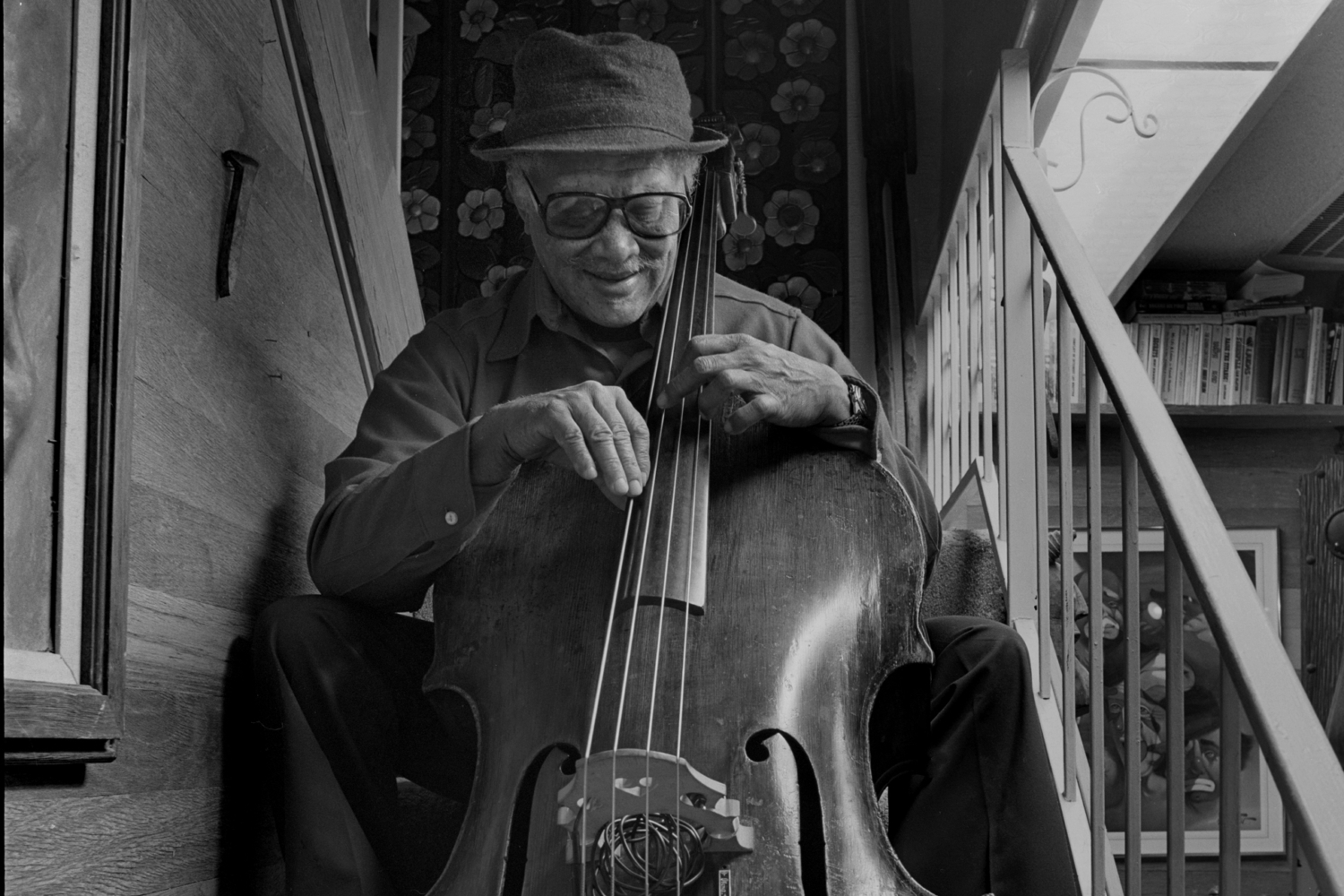
Diving into the deep end of the LA session pool, there are plenty of bassists (in addition to those in “The Wrecking Crew”) who have achieved successful and eclectic recording careers. Without a doubt, Red Callender is one of them. With an extensive background in jazz as both an upright bassist and tuba player, he can be heard on recordings by Louis Armstrong, Billie Holiday, Art Tatum, Charlie Parker, and many others. His open-minded attitude, musical sensitivity, and diversity as a multi-instrumentalist led to session calls with pop and rock artists including Sam Cooke, The Monkees, Ry Cooder, and James Taylor. If you happen to be browsing through album credits, you’ll often find his name alongside other famed bass players such as Leland Sklar and Willie Weeks. Judging by the company he keeps and the tasteful lines he plays, Callender is certainly a Bass Player To Know.
Who Is Red Callender?
Born in Haynesville, VA, George Sylvester “Red” Callender began studying music at a young age and immediately gravitated toward the tuba, upright bass, and jazz harmony. He moved to Los Angeles as a teenager and found himself recording with Louis Armstrong by the age of 19. This quickly led to more session opportunities as he landed gigs with Billie Holiday, Bing Crosby, Earl Hines, Charlie Parker, Art Tatum, Erroll Garner, Nat King Cole, and other jazz heavy weights. Around roughly 1940, Callender began teaching lessons to a determined young bass player, Charles Mingus.
Throughout the 1940s and 1960s, Callender continued to be a force to be reckoned with in the jazz world; he worked steadily as a sideman and put out numerous solo projects. Thanks to his versatility on the upright bass and tuba, as well as his professional demeanor, he was one of the first African American musicians to regularly work in the LA session scene. By the 1970s, he began getting calls for blues, pop, and rock records with artists including Randy Newman, James Taylor, Ry Cooder, The Monkees, Rickie Lee Jones, and Gregg Allman. After a long and successful career, Callendar passed away at the age of 76 due to thyroid cancer.
Let’s Talk Style
One of the best ways to be a steadily working musician is to have a diverse repertoire, an expansive knowledge of form and function, and the ability to listen and accompany other artists. Callender was a master of all three. His talent as a multi-instrumentalist brought melody to his bass playing, rhythmic sensibilities to the tuba, and beautiful tone to both.
As a bassist, he excelled at all forms of jazz ensemble playing; he appropriately asserted himself as the driving force of a trio and would just as easily exercise traditionalism and restraint when playing with a big band. His walking lines combined chord arpeggios, diatonic melodic movement, and chromaticism to not only guide the band but to make the music flow in an effortless manner. Furthermore, he had an in depth knowledge of different jazz styles, such as the long steady notes to fill out classic ballads, the tuba-like approach to New Orleans and Dixieland jazz, and the brisker pace of bebop.
Callender’s talent as an arranger came through on his solo recordings, where he took a creative approach to standards and emphasized the tuba as a lead instrument. The focus remained on the ensemble—he allowed plenty of space for players to be creative, yet successfully framed the low-register melodic instrument with higher woodwinds and French horn. This broader view of the music as a whole also spoke to his ability to succeed as a session musician playing any and all genres.
Where Can I Hear Him?
“Love For Sale” (Art Tatum: Presenting… The Art Tatum Trio)
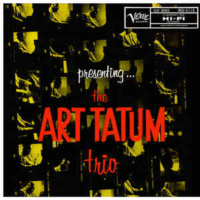 Featured on many of Tatum’s recordings, Callender exhibits taste, creativity, and expertise playing in this trio. Obviously aware of the movement of Tatum’s left hand, Callender is the perfect accompaniment to his piano playing. He switches back and forth between a root-fifth or root-root approach during the head of the tune and a walking bass line during the solo sections. His timing is impeccable, as he locks in with the drummer and further emphasizes the piano chords. If you’re looking for an exemplary jazz trio performance, this is it.
Featured on many of Tatum’s recordings, Callender exhibits taste, creativity, and expertise playing in this trio. Obviously aware of the movement of Tatum’s left hand, Callender is the perfect accompaniment to his piano playing. He switches back and forth between a root-fifth or root-root approach during the head of the tune and a walking bass line during the solo sections. His timing is impeccable, as he locks in with the drummer and further emphasizes the piano chords. If you’re looking for an exemplary jazz trio performance, this is it.
Listen: iTunes
“A Foggy Day” (Red Callender: Speak Low)
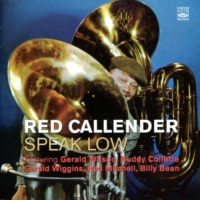 This particular record features most of Callender’s original arrangements; he exclusively plays tuba as the lead instrumentalist and is accompanied by bassist Red Mitchell. As Mitchell clearly and sophisticatedly walks through the changes, Callender focuses on the melodic interplay. Perhaps the most intriguing moment of this recording comes from trading solos between the bass and tuba. Callender begins the conversation, and the players have a distinguished dialogue culminating in a unison line. The tune concludes with a slightly dissonant call and response between the bowed upright, tuba, and higher instruments, almost mimicking the sound of a train horn in the distance.
This particular record features most of Callender’s original arrangements; he exclusively plays tuba as the lead instrumentalist and is accompanied by bassist Red Mitchell. As Mitchell clearly and sophisticatedly walks through the changes, Callender focuses on the melodic interplay. Perhaps the most intriguing moment of this recording comes from trading solos between the bass and tuba. Callender begins the conversation, and the players have a distinguished dialogue culminating in a unison line. The tune concludes with a slightly dissonant call and response between the bowed upright, tuba, and higher instruments, almost mimicking the sound of a train horn in the distance.
Listen: Amazon MP3
“Easy Money” (Rickie Lee Jones: Rickie Lee Jones)
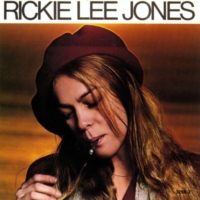 Callender sets the tone for this song with his distinctive, hearty, and soulful bass playing. He effortlessly walks through the changes, punctuates the hits, and brings a “cool jazz” attitude with a New Orleans twist to compliment Jones’ intricate vocal phrasing. This record, as well as many others from the mid to late 1970s, features Callender on the upright bass and Willie Weeks on electric; they compliment each other as instrumentalists and take a similarly groovy and dignified approach to part playing.
Callender sets the tone for this song with his distinctive, hearty, and soulful bass playing. He effortlessly walks through the changes, punctuates the hits, and brings a “cool jazz” attitude with a New Orleans twist to compliment Jones’ intricate vocal phrasing. This record, as well as many others from the mid to late 1970s, features Callender on the upright bass and Willie Weeks on electric; they compliment each other as instrumentalists and take a similarly groovy and dignified approach to part playing.
Listen: iTunes | Amazon MP3
How about you? What’s your favorite tune or album with Red Callender? Please share with us in the comments.
Ryan Madora is a professional bass player, author, and educator living in Nashville, TN. In addition to touring and session work, she teaches private lessons and masterclasses to students of all levels. Visit her website to learn more!

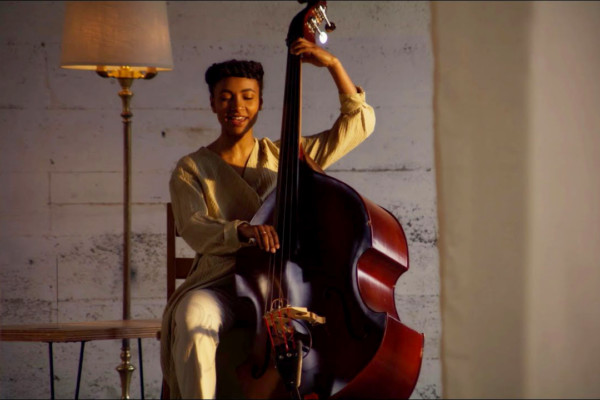


Red was my mentor. One of the greatest blessings of my life.